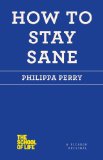December 30, 2012

Bounded Thinking: Intellectual virtues for Limited Agents by Adam Morton (Oxford University Press, USA, 2012)
(amazon.co.uk)
Book description from the publisher:
Bounded Thinking offers a new account of the virtues of limitation management: intellectual virtues of adapting to the fact that we cannot solve many problems that we can easily describe. Adam Morton argues that we do give one another guidance on managing our limitations, but that this has to be in terms of virtues and not of rules, and in terms of success–knowledge and accomplishment–rather than rationality. He establishes a taxonomy of intellectual virtues, which includes ‘paradoxical virtues’ that sound like vices, such as the virtue of ignoring evidence and the virtue of not thinking too hard. There are also virtues of not planning ahead, in that some forms of such planning require present knowledge of one’s future knowledge that is arguably impossible. A person’s best response to many problems depends not on the most rationally promising solution to solving them but on the most likely route to success given the profile of intellectual virtues that the person has and lacks. Morton illustrates his argument with discussions of several paradoxes and conundra. He closes the book with a discussion of intelligence and rationality, and argues that both have very limited usefulness in the evaluation of who will make progress on which problems.
Google Books preview:
Comments (0)
- new books,philosophy of mind
December 28, 2012

How to Stay Sane (School of Life) by Philippa Perry (Picador, 2012)
(kindle ed.), (amazon.co.uk)
Book description from the publisher:
One of The Economist’s Best Books of 2012
Everyone accepts the importance of physical health; isn’t it just as important to aim for the mental equivalent? Philippa Perry has come to the rescue with How to Stay Sane — a maintenance manual for the mind.
Years of working as a psychotherapist showed Philippa Perry what approaches produced positive change in her clients and how best to maintain good mental health. In How to Stay Sane, she has taken these principles and applied them to self-help. Using ideas from neuroscience and sound psychological theory, she shows us how to better understand ourselves. Her idea is that if we know how our minds form and develop, we are less at the mercy of unknown unconscious processes. In this way, we can learn to be the master of our feelings and not their slave.
This is a smart, pithy, readable book that everyone with even a passing interest in their psychological health will find useful.
Google Books preview:
See also: School of Life website
Comments (0)
- mind,new books,psychology
December 27, 2012

The Oxford Handbook of Philosophy and Neuroscience (Oxford Handbooks) ed. by John Bickle (Oxford University Press, 2013)
(amazon.co.uk – Feb 2013)
Book description from the publisher:
The Oxford Handbook of Philosophy and Neuroscience is a state-of-the-art collection of interdisciplinary research spanning philosophy (of science, mind, and ethics) and current neuroscience. Containing chapters written by some of the most prominent philosophers working in this area, and in some cases co-authored with neuroscientists, this volume reflects both the breadth and depth of current work in this exciting field. Topics include the nature of explanation in neuroscience; whether and how current neuroscience is reductionistic; consequences of current research on the neurobiology of learning and memory, perception and sensation, neurocomputational modeling, and neuroanatomy; the burgeoning field of neuroethics and the neurobiology of motivation that increasingly informs it; implications from neurology and clinical neuropsychology, especially in light of some bizarre symptoms involving misrepresentations of self; the extent and consequences of multiple realization in actual neuroscience; the new field of neuroeudamonia; and the neurophilosophy of subjectivity.
This volume will interest philosophers working in numerous fields who wish to see how current neuroscience is being brought to bear directly on philosophical issues. It will also be of interest to neuroscientists who wish to learn how the research programs of some of their colleagues are being enriched by interaction with philosophers, and finally to those working in any interdisciplinary field who wish to see how two seemingly disparate disciplines–one traditional and humanistic, the other new and scientific–are being brought together to both disciplines’ mutual benefit.
Google Books preview (for hardback edition):
Comments (0)
- Uncategorized





